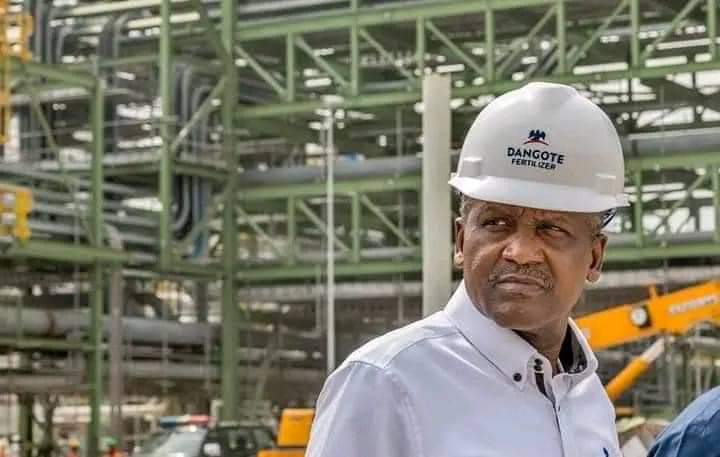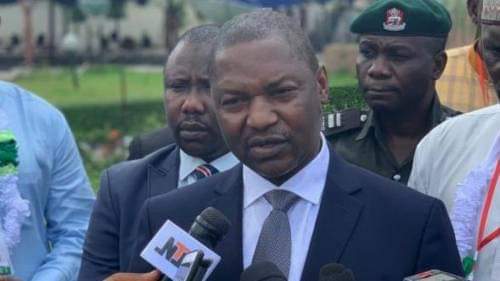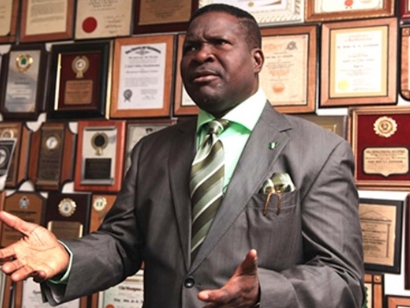
JUST IN: Dangote Refinery Announces Date To Commence Operation
Dangote Refinery is set to commence operation in October 2023 at 370,000 Barrels per day according to the executive director of the company, the S&P Global Commodity Insights reports.
In an interview, the Dangote Group Executive Director, Devakumar Edwin, who is overseeing the $19.5 billion refinery, outlined a detailed production timeline, shed light on crude and product flows and laid out a litany of complications and delays to the project since it was first mooted in 2013.
The senior company executive said the long-awaited refinery will start with diesel and jet fuel.
He said, “Right now, we are ready to receive crude. We are just waiting for the first vessel. And so as soon as it comes in we can start.”
Last Tuesday, SaharaReporters reported that the 650,000 barrels per day Dangote Refinery had yet to begin operations following the August commencement date announced earlier by Aliko Dangote, President of Dangote Group.
While delivering his speech at the official commissioning of the refinery by former President Muhammadu Buhari in May, he said, “Your excellencies, distinguished guests, our first product will be in the market before the end of July or beginning of August this year.”
The refinery’s maximum intended capacity of 650,000 b/d will make Nigeria self-sufficient in fuels while leaving ample for export.
Africa’s largest producer currently imports all of its refined goods, depleting its foreign exchange reserves. However, delays and cost overruns caused many to doubt that Aliko Dangote, Africa’s richest man, would ever deliver. Meanwhile, fuel costs in Nigeria have risen since President Bola Tinubu eliminated an expensive subsidy in late May.
Although the refinery was designed to process light sweet Nigerian crude, state-owned Nigerian National Petroleum Corps, which is a shareholder in the project, cannot supply the refinery until November, Edwin said, so Dangote is buying oil from trading houses.
Vitol and Trafigura recently carried out inspections of the plant, he said.
“At the last minute [NNPC] said, ‘We have actually committed our crude on forward basis to someone else’, so immediately they don’t have the crude,” he said. This is a temporary issue, and the refinery should run on exclusively Nigerian crude by November, he said.
Edwin said the scale of the refinery meant being “solely dependent on Nigerian crude would not be advisable”, meaning the refinery can process most African crudes — apart from heavy Angolan grades — as well as Middle Eastern Arab Light and even US light tight oil.
“We can take even some of the Russian grades… if the global system opens up to allow us to receive [them],” he said.
Although discussions started as far back as 2013, Edwin said Dangote only began physical construction five years ago following a string of delays and mishaps. The first plot of land in a free zone in Ogun state was ditched following potentially “disastrous” political interference, he said.
After buying 33 square km of land in Lagos state for $100 million, the team found more than 70% of the plot was swamp and spent a year clearing it. Then, faced with the possibility of rising sea water claiming the land in the next 70 years, Dangote spent $50 million elevating the land by 1.5 meters. “We had to hire the world’s largest dredger, second largest dredger, and third largest dredger to… pump in about 65 million cubic meters of sand.”
The company also had to construct a port capable of receiving extremely heavy assembled equipment because it lacked the infrastructure to assemble equipment in Nigeria, import 200,000 pikes to prevent sinking, buy 320 cranes and invest in a 10 million ton per year granite quarry.
Ultimately delays proved a blessing, Edwin said, because “we had time to increase the capacity of the refinery [and] improve efficiencies in the design.” What will be the world’s largest single-train refinery began life as a 300,000 b/d project, Edwin said.





